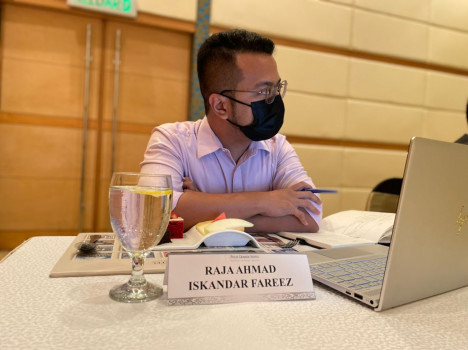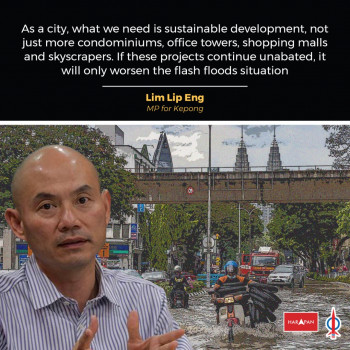Pakatan Rakyat’s decision to field Dato’ Seri Anwar Ibrahim in Kajang ignited a firestorm and drew many dissenting views. But for Pakatan to break out from the stalemate since the May 2013 election, this is a brave and strategic move.
Kajang could be the fiercest battle in Anwar’s decades of political career, as well as his riskiest bet – it certainly appears that the daggers are out for him. But these are necessary birth pangs as we search for a post GE13 breakthrough.
My political scientist friend Wong Chin Huat reminded me that in 2005 I had mooted the idea of Anwar contesting a state seat in Selangor. The logic was to gun for Putrajaya by first controlling Shah Alam. However, at that time Anwar was barred from contesting until after April 2008.
There were two reasons for the Putrajaya via Shah Alam route.
Firstly, although the Menteri Besar holds limited powers, as far as the Malaysian public is concerned, the MB position befits a high profile almost on par with the Prime Minister.
An internal GE13 post mortem by the Pakatan Secretariat found that among Malay voters, there was no nationwide voting trend.
In Terengganu and Perlis, due to UMNO infighting over the respective MB post, Pakatan’s popular votes increased. In Kedah dissatisfaction against the late Ustaz Azizan cost Pakatan precious votes.
In other states, Pakatan’s Malay support increased as well as decreased without a unified voting pattern. In several states where Pakatan’s lack of a clear MB candidate also proved to be a dent in its armour. The point is that state politics is very important in the minds of the Malay voters.
Secondly, the ground often shifts faster than we thought. There is a huge difference between the political scenario in 1998 and that of 2005, the stark contrast between Reformasi and the post-Mahathir era.
In Abdullah Badawi’s heyday, BN controlled 91% of seats and 64% of the popular vote – it was a bleak season for the opposition post-GE 2004. Hence I mooted the idea for Anwar to go for Shah Alam.
The Reformasi Generation
By the time the embers of 2008 smouldered, ten years had passed since Anwar was the Deputy Prime Minister, something the younger generation of voters are too young to remember. Hence the need for Anwar to reinvent his political legacy.
The GE14 must be held before or by 2018. By then, a child who was one year old when Anwar was sacked in 1998 would have reached the voting age. It would have been 20 years since the ‘98 Reformasi era.
In 2008, there were 10 million (10,740,227) registered voters with 76% turnout on election day. In 2013, the total number of registered voters was 13 million (13,268,002) while another 3 million or so have reached 21 years old but had yet to register as voters.
Each year there are about 500,000 Malaysians turning 21. All in, total number of voters could potentially reach 18 million in 2018, almost double that of in 2008.
To reach this generation of new voters, we need to translate the idealism and spirit of 1998 into practical policies and results. In the current soul-searching period since GE13, both BN and Pakatan are seeking for a point of breakthrough.
Prime Minister Najib Razak struggled and failed to find a way out and he has nothing new to offer to the discourse. As Najib’s handling of economic matters has aroused public anger, his approval ratings took a nosedive and left him vulnerable to attacks from the usually racially charged pro-Mahathir camp.
Better late than never
After GE13, Anwar too seemed to be stuck politically. At the same time it would not be prudent for the Pakatan-rule Selangor leaders to continue its public spats. Something serious must be done now.
In politics, standing still is as good as losing ground. Although in GE13 Pakatan managed 51% of the popular vote, it was not good enough to win federal power.
Pakatan needs to demonstrate a breakthrough in terms of discourse and results as to maintain that margin, and gain more fence-sitters’ votes.
People actually ask, is the timing right? To me, if we need to start over, it is better to do so now than wait for another two years. If we wait further to make this move, then it would really be too late.
For those who question whether Kajang is a “demotion” for Anwar, I will say this: Anwar is Pakatan’s candidate for Prime Minister, and the move to raise his profile as a state leader before aiming for national leadership is a strategic move for this season, in line with our overall strategy.



